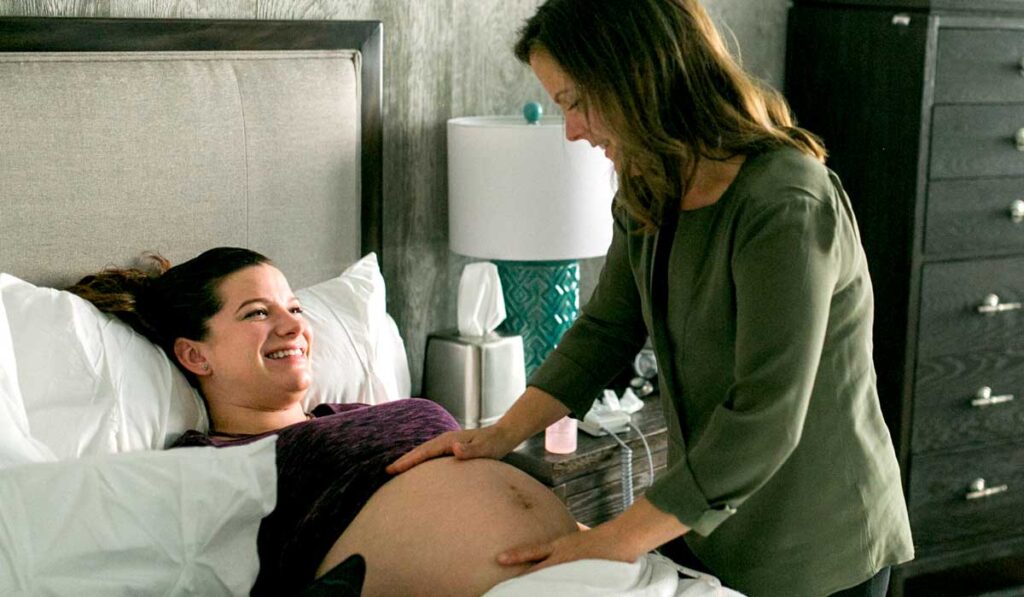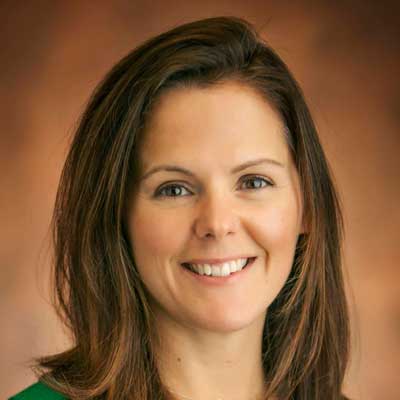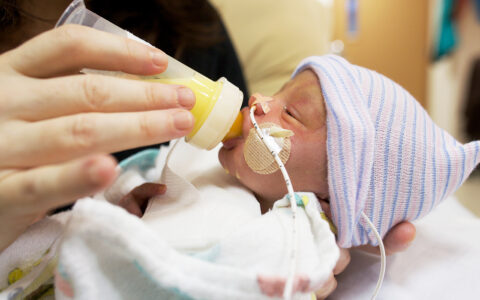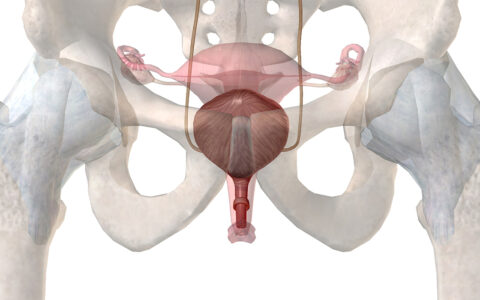Today, some pregnant women view themselves as consumers of a customized childbearing experience. Baby+Company, a freestanding birthing center within Vanderbilt University Medical Center, has spent the last five years honing such an experience for women, earning an almost unheard of 90 percent satisfaction level.
In May, Baby+Company was designated one of 69 out of 262 applicant centers in the U.S. to meet the Triple Aim challenge established by the American College of Nurse-Midwives. The designation acknowledges a superior commitment to “improving the patient experience, reducing cost of care and improving the health of populations.” This includes a cesarean birth rate under 23.9 percent, a preterm birth rate under 11.4 percent, and 81 percent of mothers exclusively breastfeeding during the first 48 hours.
Margaret Buxton, C.N.M., clinical director of the Nashville Baby+Company birth center, attributes their success to an environment built around truly listening to what clients want and individualizing their experience.
“I think the thing we did really well from early on is create meaningful feedback loops engaging clients to tell us, ‘This works,’ or ‘I really don’t like this.’ We changed how our classes were formatted, the materials we use, and other elements of our care model to reflect what our community really wants,” Buxton said.
Midwivery and Birth Outcomes
Midwives and home births dominated American culture until the early 20th century, when physician care at hospitals proved life-saving for women at high risk or with emergent labor problems. While hospital birth improves outcomes for women with risk factors, the same is not true for those who are healthy, Buxton says. “Eighty percent of women are low risk and 20 percent high risk, yet 80 percent of the deliveries are by obstetricians and only 20 percent by midwives. It is upside down.”
Despite the dominance of birthing in hospitals, maternal mortality rates in the U.S. are still 17.4 of 100,000 live births, with wide racial and ethnic gaps. Cesarean section rates in the U.S. may also appear inexplicably high at 32 percent in 2017, compared to a 5.5 percent rate in 1970.
“Eighty percent of women are low risk and 20 percent high risk, yet 80 percent of the deliveries are by obstetricians and only 20 percent by midwives. It is upside down.”
Buxton doesn’t find these statistics mysterious. “Trust and love and care affect the delivery outcome. If I am frustrated or anxious, my neurobiological response is to tamp down the oxytocin because it is not ‘safe’ for me to have my baby,” she said. “Things can quickly devolve from getting pitocin because the contractions have stopped, to the baby being in distress from too much pitocin, to finding yourself in the OR.”
A review of 26 trials with 15,858 women suggests that those with midwives had fewer interventions, fewer adverse outcomes for the mother and infant, and higher satisfaction with care.
“Our cesarean rate for women admitted into the birth center in labor is 6 percent, which is about half the rate of low risk women giving birth in hospitals,” Buxton said.
“If I am frustrated or anxious, my neurobiological response is to tamp down the oxytocin because it is not ‘safe’ for me to have my baby.”
Agile Collaboration for Best Outcomes
The nurse-midwives providing care at Baby+Company are part of the Vanderbilt University School of Nursing, and students from their midwifery program have been doing clinicals at the birthing center since it opened. Adding the center to its service lines has made Vanderbilt the only academic medical center in the country to have a freestanding birthing center, Buxton noted.
“Because we are located less than a mile from Vanderbilt, we can quickly transport women if an emergency develops,” Buxton said. “We will never replace hospitals and never should. We need this pairing so we have safe environments across all settings and risk levels.”
To foster the best care decisions, Baby+Company staff screens expectant mothers thoroughly and the works closely with hospital colleagues to correctly identify who might need more monitoring or hospital-based interventions. Clients can also self-select into the hospital.
“We will never replace hospitals and never should. We need this pairing so we have safe environments across all settings and risk levels.”
Since its inception in 2015, Baby+Company’s volume has doubled year over year. Today, they are closing in on their 2,000th delivery.
“My personal dream is that every major hospital in a bustling city like Nashville would have a birthing center,” Buxton said.





